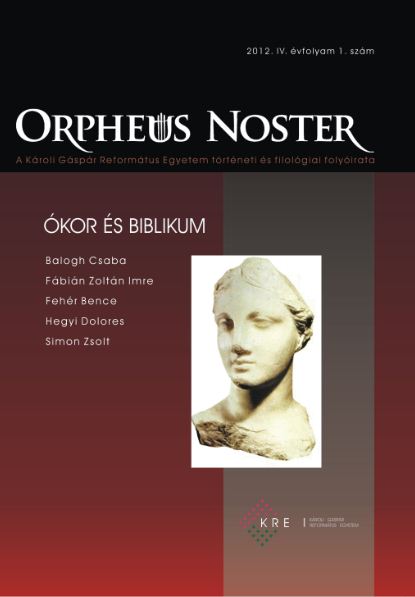„Áldott népem, Egyiptom…”
“Blessed Be My People, Egypt…”
Isaiah 19,16-25 and the Problems of Old Testament Universalism
Author(s): Csaba BaloghSubject(s): History, Language studies, Language and Literature Studies, Jewish studies, Ancient World, Theology and Religion, Philology
Published by: Károli Gáspár Református Egyetem
Keywords: Old Testament; Israelite community in the Persian or Hellenistic periods; Assyria;
Summary/Abstract: Isaiah 19,16-25 is an intriguing text in the Old Testament with a generous view on non-Israelite nations. The open-hearted universalism of this passage is often brought in connection with the eschatological expectations of the Israelite community in the Persian or Hellenistic periods. However, a closer analysis of some particular details of this text (vv. 18, 19 and 23) reveals that the picture of the future in Isa 19,16-25 is more deeply rooted in (pre-exilic) history than previously thought. This view of the future, expressed in thoroughly historical terms, shows profound awareness of the Assyrian view of the world. YHWH, the God of Israel, exerts his dominion in an indirect manner, by means of the great power of the prophet’s era, Assyria, the creation of YHWH’s hands (v. 25), to whom Egypt with all other nations is subdued (v. 23). The text has close connections with the history of the 7th century B.C., especially the era of King Manasseh of Judah, who—to believe the testimony of non-biblical texts—was actively engaged in shaping the co-ordinates and defining the power zones of a world under Assyrian control.
Journal: Orpheus Noster. A KRE Eszme-, Kultúr-, és Vallástörténeti Folyóirata
- Issue Year: IV/2012
- Issue No: 1
- Page Range: 26-50
- Page Count: 25
- Language: Hungarian

